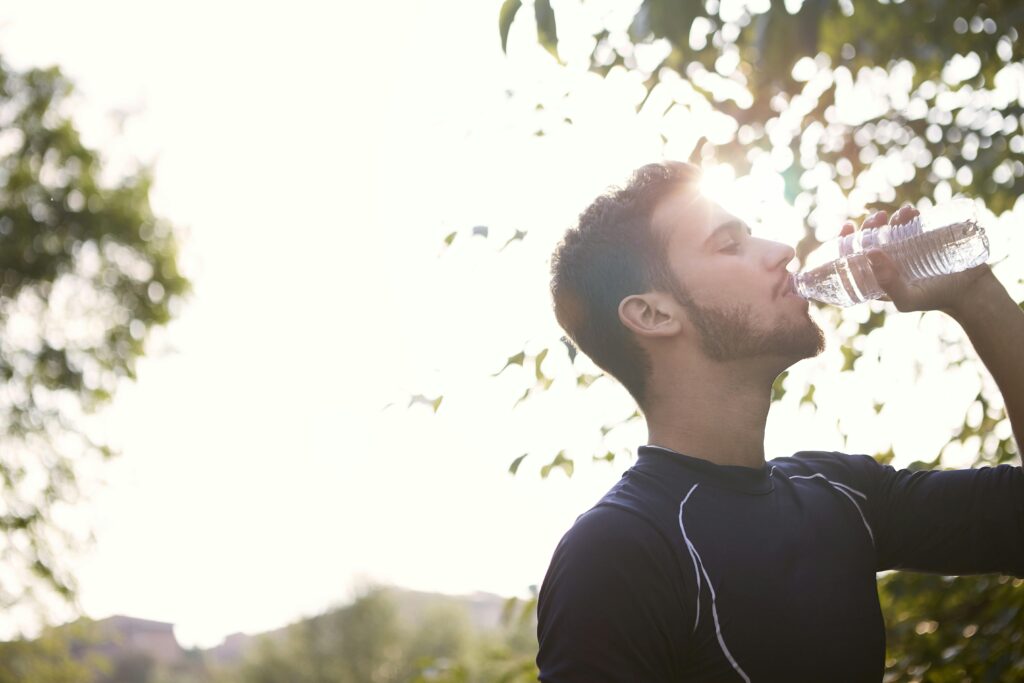Proper Hydration Tips for Athletes During Summer and Hot Weather

As athletes gear up for summer training and competitions, staying properly hydrated becomes paramount for maintaining peak performance and preventing heat-related illnesses. The combination of intense workouts and soaring temperatures can quickly lead to dehydration, impacting both physical and mental capabilities. In this article, we’ll delve into essential hydration tips tailored for athletes to thrive in hot weather conditions.
Importance of Hydration
Hydration is not just about drinking water; it’s about replenishing electrolytes lost through sweat and maintaining fluid balance crucial for optimal bodily functions. Dehydration can impair endurance, strength, and cognitive function, affecting overall athletic performance. In extreme cases, it can lead to heat exhaustion or heat stroke, serious conditions that require immediate medical attention.
Hydration Tips for Athletes
1. Start Hydrating Early
Begin hydrating well before your training or event. Aim to consume fluids throughout the day leading up to your activity, ensuring your body starts well-hydrated. The National Athletic Trainers Association recommends that athletes consume at least 16-20 ounces of water 2-3 hours before exercise and another 6-10 ounces 10-20 minutes before exercise.
2. Monitor Urine Color
Use urine color as a quick indicator of hydration status. Pale yellow to clear urine generally indicates adequate hydration, while darker urine may signify dehydration.
3. Drink Fluids Regularly
During exercise, aim to drink fluids consistently rather than waiting until you feel thirsty. Thirst is not a reliable indicator of hydration status and often indicates dehydration has already begun. It is recommended to consume approximately 6-10 ounces of fluids every 10-20 minutes of exercise.
4. Choose the Right Fluids
Water is essential, but during prolonged exercise or intense heat, electrolytes such as sodium and potassium become crucial. Consider sports drinks or electrolyte-enhanced water to replenish these vital minerals lost through sweat.
5. Avoid Excessive Sugars and Caffeine
While some sports drinks are beneficial, be mindful of their sugar content. Excessive sugars can lead to gastrointestinal discomfort. Similarly, limit caffeine intake as it can act as a diuretic, potentially increasing dehydration.
6. Cool Fluids and Use Ice
Cold fluids are absorbed more quickly and help lower core body temperature. Use ice in your drinks or opt for refrigerated fluids during hot weather training sessions.
7. Plan for Post-Exercise Hydration
After finishing your workout or competition, continue to hydrate to replace fluids lost during exercise. Water, electrolyte drinks, and hydrating foods like fruits can aid in recovery. Best practice is to base post-exercise re-hydration based on weight loss during exercise. It is best to aim for complete rehydration within two hours of the completion of exercise.
Signs of Dehydration
Recognizing signs of dehydration is crucial for prompt intervention:
- Increased thirst
- Dry mouth and throat
- Fatigue or weakness
- Dizziness or lightheadedness
- Dark urine
Conclusion
Proper hydration is a cornerstone of athletic success, especially during summer and hot weather conditions. By prioritizing hydration with these tips—starting early, monitoring urine color, choosing the right fluids, and recognizing signs of dehydration—athletes can maintain peak performance and stay healthy throughout their training and competitions. Remember, staying hydrated is not just a matter of personal comfort but a critical aspect of athletic safety and performance optimization.
Incorporate these strategies into your summer training regimen to ensure you’re giving your body the hydration it needs to perform at its best. Stay cool, stay hydrated, and excel in your athletic pursuits this summer!
References:
Written by: Stuart Schmidt, MS, ATC, CSCS Program Manager/Head Athletic Trainer for The Center Foundation in Bend, OR. Learn more about Stuart HERE.
